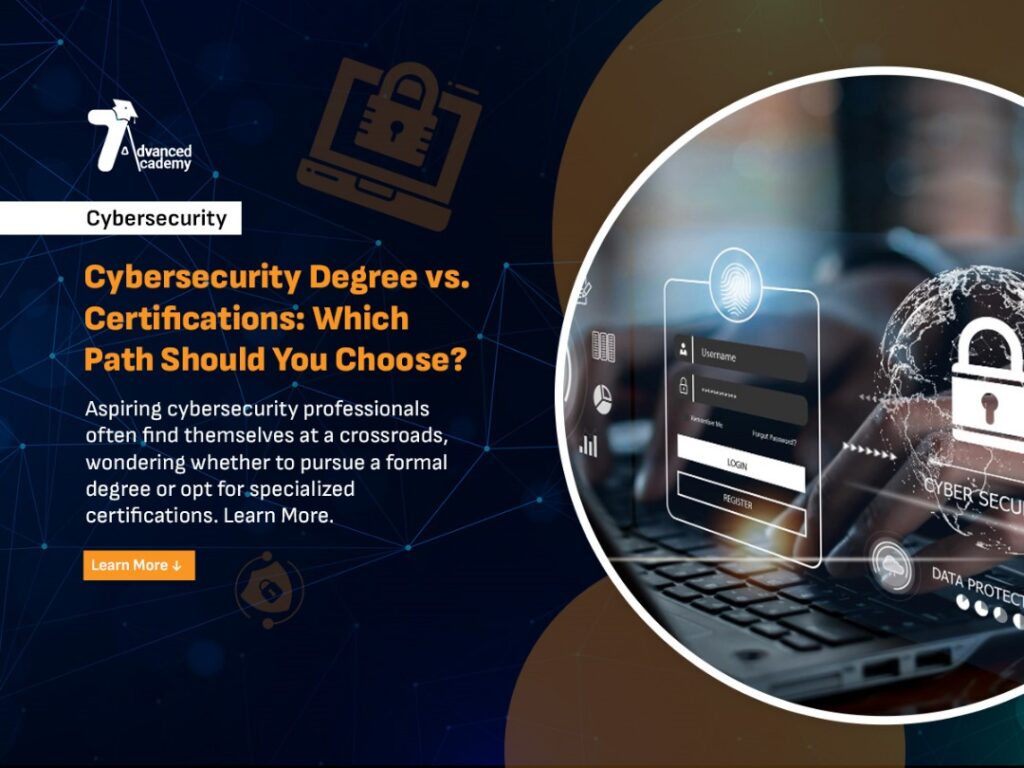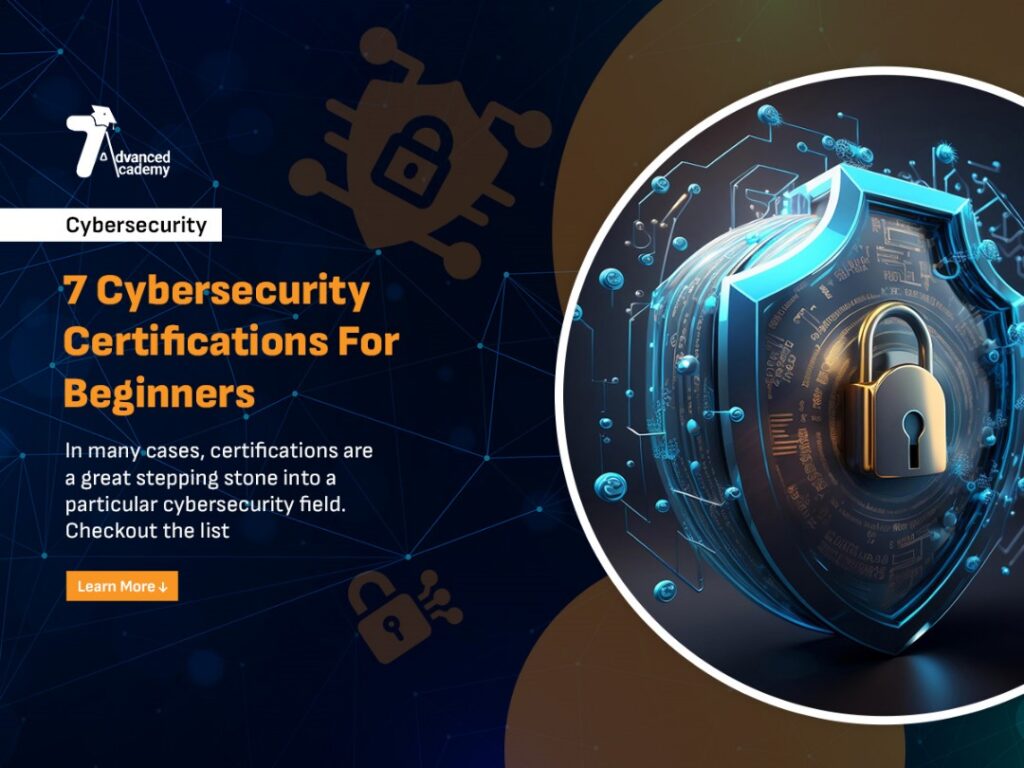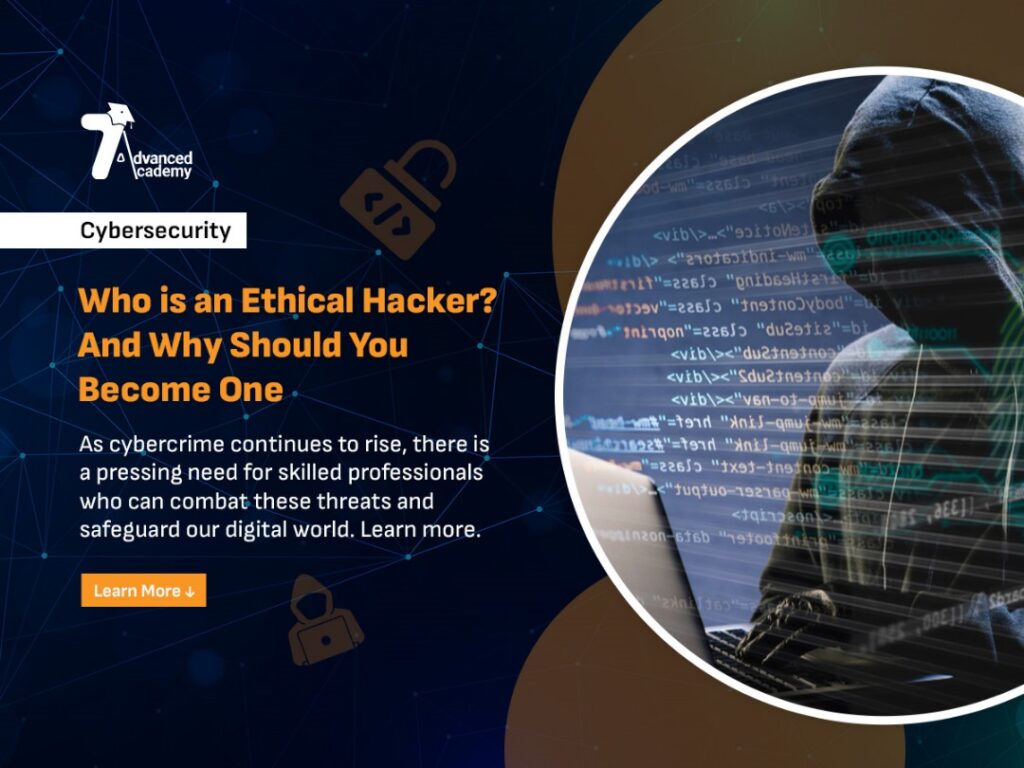Cybersecurity is a rapidly growing field in technology, with an increasing number of cyber threats prompting individuals and companies to seek ways to safeguard their digital assets. Aspiring cybersecurity professionals often find themselves at a crossroads, wondering whether to pursue a formal degree or opt for specialized certifications.
In this blog post, we will explore the key differences between a cybersecurity degree and certifications to help you make an informed decision about your career path.
Cybersecurity Degree: A Strong Foundation for Versatile Career Opportunities
A cybersecurity degree program offers a comprehensive curriculum covering various aspects of computer and network security, cybercrime, cyber law, cryptography, risk management, and ethics. This broad education equips graduates with a well-rounded understanding of the cybersecurity landscape and prepares them for a range of job opportunities.
Core topics typically covered in a cybersecurity degree program include network security, ethical hacking, data protection and privacy, digital forensics, and incident response. Beyond technical skills, pursuing a cybersecurity degree also fosters the development of critical thinking, problem-solving, and communication abilities – all essential attributes for success in the cybersecurity field.
Graduates with a cybersecurity degree can pursue diverse roles, including security analyst, security engineer, network security specialist, cybersecurity consultant, or even aspire to become a chief information security officer (CISO). The breadth of knowledge gained from a degree program enables individuals to navigate various cybersecurity challenges, leveraging a deep understanding of industry best practices and cutting-edge concepts.
Cybersecurity Certifications: Specialization and Expertise Showcased
In contrast to a degree, cybersecurity certifications offer a more focused and specialized approach. Certifications target specific domains within cybersecurity, allowing professionals to hone their expertise in areas such as network security, ethical hacking, or incident response.
Cybersecurity certifications are offered by prestigious organizations and vendors such as (ISC2), CompTIA, ISACA, EC-Council, and SANS Institute. Some of the most sought-after certifications include Certified Information Systems Security Professional (CISSP), Certified Information Security Manager (CISM), Certified Ethical Hacker (CEH), and CompTIA Security+.
A significant advantage of pursuing certifications is the ability to demonstrate proficiency in a particular domain. Employers often value these credentials as they provide tangible evidence of an individual’s skills and knowledge. Additionally, certifications help professionals stay up-to-date with the latest trends and technologies in cybersecurity through continuous learning and recertification requirements.
Choosing the Right Path: Aligning Career Goals and Aspirations
The decision between a cybersecurity degree and certifications ultimately hinges on your career goals and the specific role you envision for yourself in the cybersecurity industry.
A cybersecurity degree is an excellent choice if you seek a broad skill set and aspire to work in various roles within the field. The degree program will equip you with a comprehensive understanding of cybersecurity principles and theories, empowering you to tackle diverse challenges in the ever-evolving landscape of cyber threats.
On the other hand, certifications are ideal if you already have a foundational knowledge in cybersecurity or wish to specialize in a specific area. By acquiring certifications, you can demonstrate your expertise in the domain and stand out in a competitive job market.
Where Do You Stand?
Ultimately, the choice between a cybersecurity degree and certifications is a personal one, dependent on your career goals, interests, and aspirations. By assessing your strengths, weaknesses, and preferences, you can chart a course that propels you towards a successful and fulfilling career in the dynamic and ever-important realm of cybersecurity. Whichever path you choose, remember that dedication to learning and a passion for cybersecurity will be your strongest allies in this exciting journey.
We Are A Certified EC-Council Academy In Cameroon
Seven Advanced Academy is an official representative of EC-Council in Cameroon. You can take any one of EC-Council’s 40+ certifications in our approved center.
For entry-level, our flagship certification is the Certified Ethical Hacker (CEH) offered for a duration of 7 months. Learn more about our cybersecurity program.
Contact us on WhatsApp.




